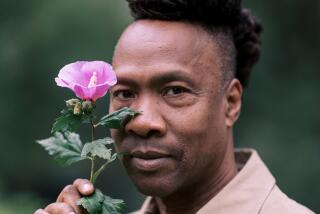Ethics and the Limits of Philosophy <i> by Bernard Williams (Harvard University: $17.50; 239 pp.)</i>
- Share via
That only an examined life is worth living was a matter of Socratic faith. The activity of examining one’s life reflectively ought accordingly to be an inseparable aspect of living it in an ethically respectable way. And since philosophy seemed to Socrates to be the reflective discipline par excellence, the thought was irresistible that philosophy must become an instrument for the conduct of life--not a special discipline practiced by experts, but something each of us must master to the degree that we seek an ethically redeemed existence.
Philosophy, however, and most particularly that branch of it one might suppose applicable to these commendable ends, namely ethical inquiry as such, has been almost spectacularly disappointing to these ancient expectations. It has been able to apply itself to life only at the price of distorting our conception of life by reducing it to one dimension of itself. Kant, for example, on the plausible assumption that only rational beings are capable of moral conduct, proceeded to develop an ethics suited to beings who were merely rational, as if the good life consisted in reasoning alone. But Kant’s was but an extreme case of a remote abstractness all across the discipline for which Socrates held such vivid and immediate hopes. And the question cannot be avoided whether these hopes were inappropriate, the business of philosophy lying elsewhere, or if philosophy is deeply flawed by its failure to satisfy them.
Bernard Williams’ book, a strenuously critical discussion of ethical theory from the Socratic perspective, seems divided between these two views. On the one hand, he means to raise the question of “How far any philosophy could help us re-create ethical life.” So perhaps it is not to philosophy’s final discredit that it should have proved so helpful: “How could it be that a subject--something studied in universities--could deliver what one might recognize as an answer to the basic questions of life?” On the other hand, he does not think that in moral philosophy today, things “are as they should be,” and part of his complaint is that it does seem internally disconnected from any concern with living of lives in any robust human fullness.
The body of his book is a sequence of astute critiques of dominating strains in recent and contemporary ethical theory, with the recurring motif that none of them takes the Socratic question of how life ought to be lived quite seriously enough. “Its prevailing fault, in all styles, is to impose on ethical life some immensely simple model.” Socrates’ question, by contrast, “Still does press a demand for reflection on one’s life as a whole , from every aspect and all the way down.” Williams returns, over and over, and with an almost prophetic insistence, to the thought that “The only serious enterprise is living.” But while it is clear that we can think about our ethical problems, “philosophy can do little to determine how we should do so.” Such skepticism not withstanding, it is evident that his ambition is redirective: to find some extension of ancient ethical theory which might, better than contemporary moral philosophy can, meet the realities of modern life.
Inevitably, the ratio of destructive criticism to positive ethical recommendation is high. This is not simply because it is easier to carp than create. It is, rather, that the level of critical ingenuity is so sustained that Williams could not in consistency be less exacting with anything he might wish to propose. The positive recommendations are accordingly merely sketched in just over five pages as a postscript. There he expresses a hopeful belief in three things: in truth, in truthfulness and in the meaning of the individual life. Necessarily schematic and compressed, these poles of an as yet unwritten system of ethics draw a certain substance from the extended critical discussions to which the book is mainly given over. The belief in truth, for example, connects with his repudiations of extreme conventionalisms and relativisms in regard to science. The belief in truthfulness rests on a qualified confidence in our capacity for reflection and a kind of nuanced objectivity in the acceptance of moral criticism. The belief in the meaning of the individual life stands in dramatic contrast to the radical reductionisms moral philosophy finds it cannot resist, and which utopian political systems often impose so brutally. Interspersed among these deep critiques are shrewd examinations of most points of philosophical contest in the theater of current ethical analysis.
Bernard Williams is provost of Kings College, Cambridge, and a master philosopher. He is widely esteemed as a critic of singular acuity and a writer of epigrammatic lucidity. And though very much an “analytical” philosopher, he commands considerable historical knowledge of philosophy, especially of classical philosophy.
The present book is one that will be most appreciated by those who know most already about the philosophies it addresses. The argument is dense and muscular, so the reading must be correspondingly arduous and close. But the book is at no point obscure, and those who work it through will be rewarded not only by the overall clarity it induces, but by the wit and sharpness of its aphorisms and the steady human sympathy of its outlook.
More to Read
Sign up for our Book Club newsletter
Get the latest news, events and more from the Los Angeles Times Book Club, and help us get L.A. reading and talking.
You may occasionally receive promotional content from the Los Angeles Times.






